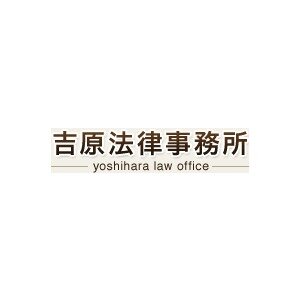Best Estate Planning Lawyers in Sapporo
Share your needs with us, get contacted by law firms.
Free. Takes 2 min.
List of the best lawyers in Sapporo, Japan
About Estate Planning Law in Sapporo, Japan
Estate planning in Sapporo, Japan, involves organizing and managing an individual's assets for the inheritance or estate transfer process. This process includes creating wills, trusts, and other legal documents to ensure that a person's estate is managed or distributed according to their wishes after their death. Japanese estate planning law is influenced by the country's civil codes, and local practices in Sapporo may slightly vary compared to other regions in Japan, although fundamental principles remain consistent.
Why You May Need a Lawyer
There are several situations where seeking legal assistance for estate planning becomes necessary. These include:
- If you own significant assets or have a complex estate, a lawyer can help you structure your estate plan to minimize tax liabilities and ensure a smooth transfer of assets.
- In cases where you wish to create detailed provisions for heirs or beneficiaries, lawyers can provide tailored advice and drafting expertise.
- If family dynamics are complicated, such as blended families or potential disputes among beneficiaries, a lawyer can help mediate and implement strategies to avoid conflicts.
- In the event of foreign assets or if any family members reside outside Japan, cross-border legal expertise is crucial.
- Legal counsel can be invaluable when updating estate plans due to significant life changes like marriages, divorces, births, or deaths.
Local Laws Overview
Estate planning in Sapporo, and broadly in Japan, is governed by the country's Civil Code, particularly Book 5, which deals with successful succession issues. Key aspects of local laws include:
- Wills: The preparation and execution of wills are guided by stringent formalities to ensure validity. This includes handwritten (holographic) wills, notarized wills, and secret wills.
- Inheritance Tax: Japan has a progressive inheritance tax system that applies to worldwide assets for residents. Understanding local tax rates and exemptions is crucial for estate planning.
- Legal Heirs: The law designates certain relatives as legal heirs, and the distribution of the estate often respects these rules unless specified differently in a valid will.
- Trusts: Although less common than in some other jurisdictions, establishing a trust requires compliance with Japan's Trust Law and related guidelines.
Frequently Asked Questions
What is the role of a notary in estate planning in Japan?
A notary in Japan can authenticate documents such as wills, ensuring they meet legal standards and reducing the risk of disputes during probate.
Can I disinherit an heir in Japan?
While you can specify the distribution of your estate in a will, certain heirs (like children or spouses) are entitled to a legal minimum inheritance that cannot be entirely revoked.
What types of wills are recognized in Japan?
The three main types of wills recognized include holographic wills, notarized wills, and secret wills, each with specific requirements and benefits.
How can estate planning minimize inheritance taxes?
Effective strategies might include making lifetime gifts, creating trusts, or planning the distribution of assets to optimize tax liabilities.
Is it necessary to involve beneficiaries when creating an estate plan?
While not mandatory, involving potential beneficiaries can prevent misunderstandings and conflicts after one's passing.
If I have assets outside Japan, how should I handle them in my estate plan?
It's helpful to engage legal professionals familiar with cross-border estate planning to manage assets in different jurisdictions effectively.
What happens if somebody dies without a will in Japan?
If an individual passes away intestate (without a will), their estate is distributed according to statutory intestate succession laws, which may not align with the deceased's personal wishes.
How frequently should I update my estate plan?
Review your estate plan periodically, especially after significant life events such as marriage, divorce, the birth of children, or acquisition of substantial assets.
Can foreigners engage in estate planning in Japan?
Yes, foreigners residing in Japan can and should engage in estate planning, considering both local laws and relevant regulations in their home countries.
How long does the probate process take in Japan?
The probate process could range from several months to a few years depending on the estate's complexity and whether disputes arise among heirs.
Additional Resources
For more information or assistance with estate planning, consider the following resources:
- The Legal Affairs Bureau: Provides guidance and resources for legal processes, including estate planning.
- Japanese Probate Court: This court handles matters related to wills and estate settlements.
- Ministry of Justice of Japan: The official site offers legal guidelines and information on succession and inheritance laws.
- Japan Federation of Bar Associations: Can assist in finding a lawyer specializing in estate planning.
Next Steps
To proceed with estate planning in Sapporo, consider taking the following steps:
- Assess your current asset portfolio and identify key priorities or concerns regarding its distribution.
- Schedule consultations with qualified estate planning attorneys in Sapporo to discuss your situation.
- Gather necessary documentation, including current wills, asset inventories, and identification papers.
- Consider the potential need for a notary to authenticate and validate certain estate planning documents.
- Review and update your estate plan regularly to accommodate any life changes or shifts in asset ownership.
Lawzana helps you find the best lawyers and law firms in Sapporo through a curated and pre-screened list of qualified legal professionals. Our platform offers rankings and detailed profiles of attorneys and law firms, allowing you to compare based on practice areas, including Estate Planning, experience, and client feedback.
Each profile includes a description of the firm's areas of practice, client reviews, team members and partners, year of establishment, spoken languages, office locations, contact information, social media presence, and any published articles or resources. Most firms on our platform speak English and are experienced in both local and international legal matters.
Get a quote from top-rated law firms in Sapporo, Japan — quickly, securely, and without unnecessary hassle.
Disclaimer:
The information provided on this page is for general informational purposes only and does not constitute legal advice. While we strive to ensure the accuracy and relevance of the content, legal information may change over time, and interpretations of the law can vary. You should always consult with a qualified legal professional for advice specific to your situation.
We disclaim all liability for actions taken or not taken based on the content of this page. If you believe any information is incorrect or outdated, please contact us, and we will review and update it where appropriate.










